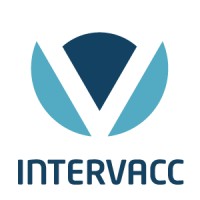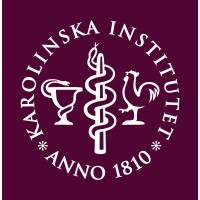Advancements in Animal Health: Intervacc and Karolinska Institutet's Innovative Vaccine Development
August 21, 2024, 5:44 pm
In the realm of animal health, innovation is a powerful ally. Intervacc AB, a Swedish company, is at the forefront of this revolution. Their partnership with the Karolinska Institutet (KI) has blossomed into a beacon of hope for animal welfare. Recently, they announced an extension of their collaboration, paving the way for groundbreaking vaccine development. This partnership is not just about science; it’s about the future of animal health.
The collaboration began with a shared vision: to create effective vaccines using recombinant fusion proteins. This method is akin to building a fortress against disease. By combining different elements, they craft a shield that protects animals from harmful infections. The extension of this contract means that the research team at KI, led by Professor Birgitta Henriques Normark, will continue to play a crucial role in this endeavor.
Their flagship product, Strangvac, is already making waves. This vaccine targets equine strangles, a highly contagious disease caused by the bacterium Streptococcus equi. The stakes are high. Strangles can devastate horse populations, leading to severe health issues and economic losses. Strangvac is now available in key European markets, offering a lifeline to horse owners and veterinarians alike.
But the journey doesn’t stop there. Intervacc’s research pipeline is brimming with potential. They are developing vaccines for other significant threats, including Streptococcus suis infections in piglets and Staphylococcus aureus in dairy cows. These infections can wreak havoc on livestock, impacting food production and animal welfare. The need for effective vaccines is urgent. With nearly one billion pigs worldwide, a safe and effective vaccine against Streptococcus suis is long overdue.
The implications of these developments extend beyond animal health. Effective vaccines can reduce the reliance on antibiotics, a pressing global concern. Antibiotic resistance is a ticking time bomb, threatening both human and animal health. By enhancing animal health through vaccination, Intervacc is contributing to a broader solution.
The recent publication of guidelines by European experts on equine strangles further underscores the importance of Strangvac. This article, featured in Equine Veterinary Education, serves as a roadmap for veterinarians. It shares insights from the field, detailing vaccination intervals and strategies during outbreaks. The ability to differentiate between infected and vaccinated animals is a game-changer. It allows for more precise management of strangles, ultimately protecting horse populations.
Safety is paramount in vaccine development. The guidelines also address reported adverse events, reassuring veterinarians that Strangvac is safe for use. This transparency builds trust within the veterinary community, encouraging more widespread adoption of the vaccine.
Intervacc’s commitment to innovation is evident. Their partnership with KI and the Swedish University of Agricultural Sciences (SLU) is a testament to the power of collaboration. Together, they are not just developing vaccines; they are shaping the future of animal health. The integration of modern vaccine technology into the animal health sector is a significant leap forward.
The Karolinska Institutet is a titan in medical research. Its contributions to human health are well-documented, but its impact on animal health is equally vital. By harnessing their expertise, Intervacc is tapping into a wealth of knowledge that enhances their vaccine development efforts. This synergy is akin to a well-oiled machine, where each part works in harmony to achieve a common goal.
As the world grapples with the challenges of food production and animal welfare, the role of vaccines becomes increasingly critical. Intervacc’s innovative approach is a ray of hope. Their vaccines not only protect animals but also contribute to sustainable food systems. This dual benefit is essential in a world where the demand for food continues to rise.
The economic implications are significant. Healthier animals lead to more productive farms. This translates to better food security and economic stability for farmers. By investing in vaccine development, Intervacc is not just protecting animals; they are supporting livelihoods.
In conclusion, the collaboration between Intervacc and the Karolinska Institutet is a shining example of what can be achieved through innovation and partnership. The extension of their contract signals a commitment to advancing animal health. With vaccines like Strangvac leading the charge, the future looks promising. As they continue to develop new solutions, the ripple effects will be felt across the globe. Healthier animals, reduced antibiotic use, and enhanced food production are just the beginning. The journey toward a healthier future for animals and humans alike is well underway.
The collaboration began with a shared vision: to create effective vaccines using recombinant fusion proteins. This method is akin to building a fortress against disease. By combining different elements, they craft a shield that protects animals from harmful infections. The extension of this contract means that the research team at KI, led by Professor Birgitta Henriques Normark, will continue to play a crucial role in this endeavor.
Their flagship product, Strangvac, is already making waves. This vaccine targets equine strangles, a highly contagious disease caused by the bacterium Streptococcus equi. The stakes are high. Strangles can devastate horse populations, leading to severe health issues and economic losses. Strangvac is now available in key European markets, offering a lifeline to horse owners and veterinarians alike.
But the journey doesn’t stop there. Intervacc’s research pipeline is brimming with potential. They are developing vaccines for other significant threats, including Streptococcus suis infections in piglets and Staphylococcus aureus in dairy cows. These infections can wreak havoc on livestock, impacting food production and animal welfare. The need for effective vaccines is urgent. With nearly one billion pigs worldwide, a safe and effective vaccine against Streptococcus suis is long overdue.
The implications of these developments extend beyond animal health. Effective vaccines can reduce the reliance on antibiotics, a pressing global concern. Antibiotic resistance is a ticking time bomb, threatening both human and animal health. By enhancing animal health through vaccination, Intervacc is contributing to a broader solution.
The recent publication of guidelines by European experts on equine strangles further underscores the importance of Strangvac. This article, featured in Equine Veterinary Education, serves as a roadmap for veterinarians. It shares insights from the field, detailing vaccination intervals and strategies during outbreaks. The ability to differentiate between infected and vaccinated animals is a game-changer. It allows for more precise management of strangles, ultimately protecting horse populations.
Safety is paramount in vaccine development. The guidelines also address reported adverse events, reassuring veterinarians that Strangvac is safe for use. This transparency builds trust within the veterinary community, encouraging more widespread adoption of the vaccine.
Intervacc’s commitment to innovation is evident. Their partnership with KI and the Swedish University of Agricultural Sciences (SLU) is a testament to the power of collaboration. Together, they are not just developing vaccines; they are shaping the future of animal health. The integration of modern vaccine technology into the animal health sector is a significant leap forward.
The Karolinska Institutet is a titan in medical research. Its contributions to human health are well-documented, but its impact on animal health is equally vital. By harnessing their expertise, Intervacc is tapping into a wealth of knowledge that enhances their vaccine development efforts. This synergy is akin to a well-oiled machine, where each part works in harmony to achieve a common goal.
As the world grapples with the challenges of food production and animal welfare, the role of vaccines becomes increasingly critical. Intervacc’s innovative approach is a ray of hope. Their vaccines not only protect animals but also contribute to sustainable food systems. This dual benefit is essential in a world where the demand for food continues to rise.
The economic implications are significant. Healthier animals lead to more productive farms. This translates to better food security and economic stability for farmers. By investing in vaccine development, Intervacc is not just protecting animals; they are supporting livelihoods.
In conclusion, the collaboration between Intervacc and the Karolinska Institutet is a shining example of what can be achieved through innovation and partnership. The extension of their contract signals a commitment to advancing animal health. With vaccines like Strangvac leading the charge, the future looks promising. As they continue to develop new solutions, the ripple effects will be felt across the globe. Healthier animals, reduced antibiotic use, and enhanced food production are just the beginning. The journey toward a healthier future for animals and humans alike is well underway.

